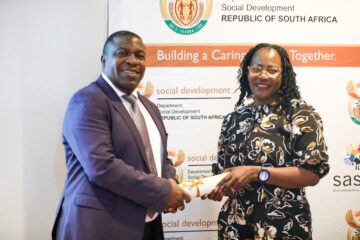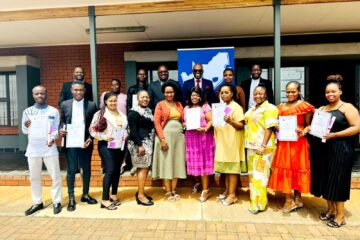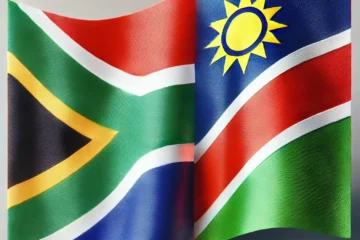SOUTH AFRICA’S PATH TO ZERO HUNGER: MINISTER NTSHAVHENI CALLS FOR URGENT ACTION AT SOCIAL JUSTICE SUMMIT

- Minister Khumbudzo Ntshavheni, at the 6th Annual Social Justice Summit, stressed the urgency of addressing South Africa’s growing food insecurity crisis and called for immediate action to achieve Sustainable Development Goal 2: Zero Hunger.
- She emphasised the need for systemic interventions, including enhancing agricultural productivity, empowering smallholder farmers, and adopting sustainable farming practices, while highlighting the critical role of localised food systems in improving food security.
- Ntshavheni urged collaboration across government, academia, and the private sector, citing existing programmes like the National School Nutrition Programme, and called for comprehensive drought resilience plans to mitigate the impact of climate change.
At the 6th Annual Social Justice Summit in Cape Town, Khumbudzo Ntshavheni, Minister in the Presidency, delivered a powerful address urging immediate action and collaboration to achieve Sustainable Development Goal 2: Zero Hunger in South Africa. Speaking to a gathering of academics, government officials, and international partners, Minister Ntshavheni emphasised the urgency of addressing the country’s food insecurity crisis.
“This goal represents the hope, dignity, and future of millions of our fellow citizens,” Ntshavheni stated, underscoring the significance of achieving Zero Hunger. She highlighted how hunger impacts the nation’s economic growth, public health, and social stability. Despite South Africa’s status as a food-producing nation, she described the paradox that millions of citizens still suffer from hunger and malnutrition.
Ntshavheni pointed out that enhancing agricultural productivity and empowering smallholder farmers is crucial to combat this crisis. “Supporting smallholder farmers is not just about boosting food production—it’s about empowering communities and ensuring local food systems thrive,” she explained. The Minister also stressed the importance of sustainable farming practices, such as crop rotation and organic farming, to protect natural resources while increasing food production.
Climate change remains a critical concern, with 91% of South Africa classified as dryland. Minister Ntshavheni warned that the country’s food insecurity will worsen if left unchecked. “The potential for worsening droughts makes it clear that we must urgently develop comprehensive drought resilience and water conservation plans,” she urged.
While highlighting government efforts like the National School Nutrition Programme (NSNP), which provides meals to over 9.6 million learners, and the Child Support Grant, which has lifted 2 million children out of poverty, Ntshavheni acknowledged that more needs to be done. “Achieving Zero Hunger requires systemic interventions that go beyond merely providing food. It demands tackling poverty, inequality, and the root causes of hunger,” she emphasised.
Ntshavheni also stressed the importance of collaboration between government, academia, and the private sector in achieving food security. Praising Stellenbosch University’s role in research on sustainable agriculture, she said, “Universities are better placed to lead research on sustainable agricultural technologies, such as drought-resistant crops and precision farming techniques.”
She called on all South Africans to support local food systems, saying, “Communities should be encouraged to support local farmers’ markets and food cooperatives. Localised food systems can be more responsive to the needs of communities and provide fresh, nutritious food to those who need it most.”
The Minister highlighted the government’s plans to develop the National Food and Nutrition Security Implementation Plan (2024-2030) in alignment with the country’s Vision 2030 goals. She invited all sectors of society to join this effort, noting, “We are not only calling for a partnership in its development but also in its implementation as our country focuses on achieving the overdue SDG on Zero Hunger.”
As the summit concluded, Minister Ntshavheni reiterated that achieving zero hunger is essential for creating a more equitable and just society. “Together, we can build a South Africa where no one goes hungry, where food security is a reality for all, and where we contribute to the protection of the planet for future generations,” she said.
The summit, hosted by the University of Stellenbosch’s Centre for Social Justice, included high-profile participants such as Deputy Minister Samantha Graham, Prof. Thuli Madonsela, and Dr. Babagana Ahmadu of the UN Food and Agriculture Organization. The event focused on the intersection of social justice and food security, emphasising the need for comprehensive strategies to eliminate hunger.














